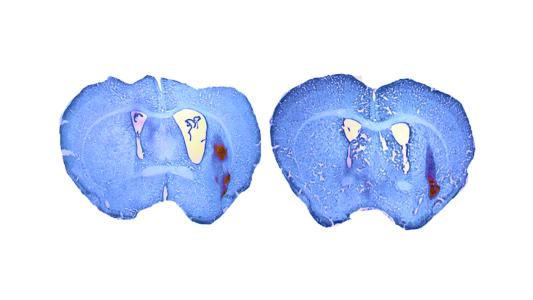Compounds derived from the beer-making staple, hops, slowed the buildup of fat in the livers of mice, suggesting they might be able to help prevent — or even treat — fatty liver disease.
Fatty liver disease: Your liver is supposed to have some fat, but if fat accounts for 5% or more of the organs’ weight, you have “hepatic steatosis,” also known as fatty liver disease.
Heavy alcohol use can cause fatty liver disease, but nonalcoholic fatty liver disease (NAFLD) is more common, affecting about 25% of the U.S. population.
While researchers don’t know what exactly causes NAFLD, risk factors include obesity and metabolic syndrome. Studies suggest that genetics and the gut microbiome might play a role, too.
The challenge: There aren’t any medications to treat NAFLD — doctors can only recommend that patients exercise and lose weight.
Some NAFLD sufferers may have physical problems that make exercising difficult, though, and eating healthier tends to be difficult for people in general.
The idea: Through previous research, scientists at Oregon State University knew that two compounds derived from hops — flowers commonly used to flavor beer — could help prevent obesity and metabolic syndrome in mice eating a high-fat diet.
The compounds — XN and TXN — do this by interfering with a protein called PPARγ, which plays a role in the creation and storage of fat cells. For a new study, they set out to see if the same hops compounds could prevent the buildup of fat in rodents’ livers.
The study: Sixty mice were broken into five groups for the study. One group was fed a low-fat diet, and another was fed a high-fat diet. Mice in the three remaining groups were fed high-fat diets supplemented by TXN, a low dose of XN, or a high dose of XN.
The TXN reduced both weight gain and the accumulation of liver fat in the mice. The higher dose of XN was also able to reduce weight gain and slow the buildup of liver fat, but not as significantly.
The hops compounds could be the first medicine to treat NAFLD.
“It may be because XN is metabolized by the host and its gut microbiota more than TXN is, but additional studies are needed to figure that out,” lead researcher Adrian Gombart said in a press release.
Looking ahead: Additional studies are also needed to test whether the hops compounds can prevent weight gain, treat existing obesity, or mitigate the buildup of liver fat in people.
If so, the supplements could be the first medicine to treat NAFLD, potentially improving the health of nearly one in four Americans.
“(O)ur findings…support further development of XN and TXN as low-cost therapeutic compounds,” Gombart said.
We’d love to hear from you! If you have a comment about this article or if you have a tip for a future Freethink story, please email us at [email protected].






